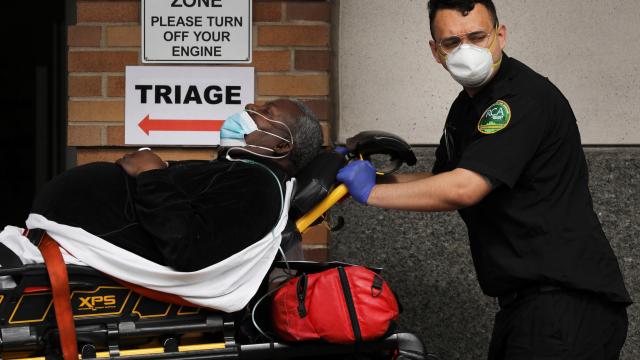A new study out this week is the latest to suggest that the effects of covid-19 can extend beyond the initial acute illness. Researchers found that about one in every five people diagnosed with covid-19 went on to be diagnosed with an episode of mental illness and/or insomnia in the three months following — a rate higher than in people who became sick but were not diagnosed with covid-19 during that same time period.
The new research, published in the Lancet Psychiatry on Monday, analysed anonymised medical records from a database of 69.8 million patients in the U.S. Of these, over 62,000 patients were diagnosed with covid-19 between January 20 and August 1, 2020, and 44,000 had no previous history of mental illness. The researchers compared the mental health outcomes of these patients to patients diagnosed with one of six other medical conditions, including influenza or other respiratory infections, a broken bone, a skin infection, and kidney stones. These other patients were used as a sort of control, since many acute health problems are known to affect a person’s mental health, at least temporarily.
[referenced id=”1376596″ url=”https://gizmodo.com.au/2020/09/the-pandemic-is-taking-a-heavy-toll-on-our-mental-health-study-finds/” thumb=”https://gizmodo.com.au/wp-content/uploads/2020/09/04/mmlhmi7bhuypmvdxf4q8-300×168.jpg” title=”The Pandemic Is Taking a Heavy Toll on Our Mental Health, Study Finds” excerpt=”A new study out Wednesday is the latest to show that the covid-19 pandemic is taking a heavy toll on Americans’ mental health. The research found that more than a quarter of adults surveyed have clearly experienced depression symptoms recently — over three times as many who said the same…”]
All told, across nearly every marker of mental or neurological health the researchers looked at, people with confirmed covid-19 appeared to be worse off.
About 18% of people were diagnosed with common psychiatric illnesses such as generalized anxiety disorder, major depression, or other mood disorders in the 14 to 90 days following their covid-19 diagnosis; this included first-time diagnoses in people with no previous mental illness history as well as those with recurrent episodes. That represented a higher rate of diagnoses compared to any other group of patients, ranging from around 25% to 50% higher. These added risks were greater in people hospitalized with covid-19, but the pattern could also be seen in people not hospitalized.
The same sort of gap appeared for insomnia, with about 2% of covid-19 patients being diagnosed with insomnia for the first time, a rate two to almost four times higher than for other patients. The rate of dementia among covid-19 patients over 65 (1.6%) was also more than twice as high compared to every other group. And while only 5.6% of covid-19 patients had a first-time diagnosis of psychiatric illness, that was still about twice as high as those without covid-19.
This study is observational, meaning that it can’t show a direct causal relationship between the viral illness and worsening brain health. But it does line up with other research showing a similar link between the stresses of the pandemic and mental health issues. Some experts also warned earlier this year that covid-19 would likely affect people’s neuropsychiatric wellbeing, simply based on the history of past pandemics.
The findings, according to the authors, suggest that covid-19 “has an impact on psychiatric health above and beyond that which occurs after other acute health events.”
It’s certainly possible that many covid-19 survivors diagnosed with these mental health problems will go on to recover fairly quickly. Anxiety disorders, the most common illness reported in the study, tend to be treatable with existing options like therapy or medication. And the researchers didn’t find a major added risk of treatment-resistant psychotic disorders like schizophrenia among survivors. At the same time, it’s likely those numbers are underselling the scale of mental harm caused by the pandemic, since many people still struggle to seek psychological help.
Another worrying aspect of the study is that the researchers found a surprising link between having any mental illness in the recent past and then contracting covid-19. At least one study, in Korea, found no such connection, but it was much smaller than this one, the authors noted.
The same social factors that predispose people to mental illness, like having little money or trouble with housing, may also make people more vulnerable to covid-19, which has disproportionately affected lower-income populations so far. But this added risk still existed even after researchers tried to account for that. One other possible explanation, the authors speculate, is that the physical changes seen in people with mental illness, whether from the illness itself or the medications used to treat it, could make a person’s immune system more susceptible to infection, but that’s a theory that will need to be studied further.
In any case, this study is a somber reminder that the harms of the pandemic, now re-surging globally, can’t be measured solely by looking at the climbing death toll.
